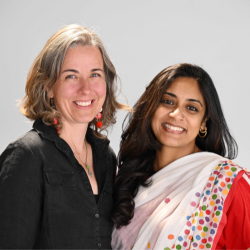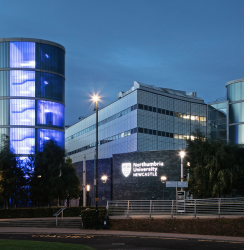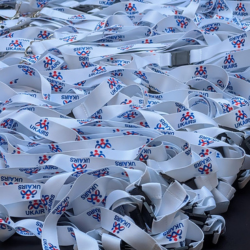-
Study
-
Undergraduate
- UCAS Clearing & Confirmation 2025
- Application Guides
- UCAS Exhibitions
- Foundation Years
- School & College Outreach
- Information for Parents
-
Postgraduate
- Application Guide
- Postgraduate Research Degrees
- Flexible Learning
- Change Direction
- Register your Interest
-
Student Life
- Students' Union
- The Hub - Student Blog
- Accommodation
- Northumbria Sport
- Support for Students
-
Learning Experience
- Real-World Learning
- Research-enriched learning
- Graduate Futures
- The Business Clinic
- Study Abroad
-
-
International
International
Northumbria’s global footprint touches every continent across the world, through our global partnerships across 17 institutions in 10 countries, to our 277,000 strong alumni community and 150 recruitment partners – we prepare our students for the challenges of tomorrow. Discover more about how to join Northumbria’s global family or our partnerships.
View our Global Footprint-
Quick Links
- Course Search
- Undergraduate Study
- Postgraduate Study
- Information for Parents
- London Campus
- Northumbria Pathway
- Cost of Living
- Sign up for Information
-
International Students
- Information for Students
- International Events
- Application Guide
- Entry Requirements and Education Country Agents
- Global Offices
- English Requirements
- English Language Centre
- International student support
- Cost of Living
-
International Fees and Funding
- International Undergraduate Fees
- International Undergraduate Funding
- International Masters Fees
- International Masters Funding
- International Postgraduate Research Fees
- International Postgraduate Research Funding
-
International Partners
- Agent and Representatives Network
- Global Partnerships
- Global Community
-
International Mobility
- Study Abroad
- Information for Incoming Exchange Students
-
-
Business
Business
The world is changing faster than ever before. The future is there to be won by organisations who find ways to turn today's possibilities into tomorrows competitive edge. In a connected world, collaboration can be the key to success.
More on our Business Services -
Research
Research
Northumbria is a research-rich, business-focused, professional university with a global reputation for academic quality. We conduct ground-breaking research that is responsive to the science & technology, health & well being, economic and social and arts & cultural needs for the communities
Discover more about our Research-
Quick Links
- Research Peaks of Excellence
- Academic Departments
- Research Staff
- Postgraduate Research Studentships
- Research Events
-
Research at Northumbria
- Interdisciplinary Research Themes
- Research Impact
- REF
- Partners and Collaborators
-
Support for Researchers
- Research and Innovation Services Staff
- Researcher Development and Training
- Ethics, Integrity, and Trusted Research
- University Library
- Vice Chancellors Fellows
-
Research Degrees
- Postgraduate Research Overview
- Doctoral Training Partnerships and Centres
- Academic Departments
-
Research Culture
- Research Culture
- Research Culture Action Plan
- Concordats and Commitments
-
-
About Us
-
About Northumbria
- Our Strategy
- Our Staff
- Our Schools
- Place and Partnerships
- Leadership & Governance
- University Services
- History of Northumbria
- Contact us
- Online Shop
-
-
Alumni
Alumni
Northumbria University is renowned for the calibre of its business-ready graduates. Our alumni network has over 250,000 graduates based in 178 countries worldwide in a range of sectors, our alumni are making a real impact on the world.
Our Alumni - Work For Us
What will I learn on this module?
Through this module you’ll continue to expand the knowledge and practicalities needed to gain an intermediate understanding of graphic design theory and practice. The work you accomplish will continue to be informed by a commitment to research, concept generation, visual problem solving and the way in which it shapes how we teach and practice graphic design. It is the same process; the briefs will be more demanding and challenging and new knowledge will be imparted through project briefs and technical workshops throughout the module.
You will continue to solve visual problems through lateral and conceptual thinking. We will expect more of you in your use of the processes of immersive research, ideation, and visualisation, reflection, and presentation, through to realisation through crafting. As before, these activities form the essential components of your design process; a process that will sustain you over through the course and hopefully into design employment post-graduation.
You’ll continue to learn and develop abilities by exploring the expressive and creative potential offered by graphic design technical processes and techniques through further skills introductions supported by practical workshop activities. Learning by undertaking new and challenging technical processes in this module, while using and developing the skills learned in earlier modules, helps you underpin novel and experimental approaches to problem solving.
In summation, you will be introduced new creative techniques while developing your intellectual awareness and creative processes that define the practice of graphic design.
How will I learn on this module?
You’ll learn through a blend of short and longer, practical, more challenging graphic design project briefs designed to develop your Semester One learning in the previous Core Skills and Typography One modules. Briefs in the module will have greater creative scope, complexity, and a more robust technical and conceptual ask. The cognitive processes of visual problem solving and conceptual thinking alongside a greater emphasis on high-quality craft required by the graphic design student will be developed preparing the student for Level 5 study. Your learning will develop through a blend of online, practical studio and workshop-based learning activities, in addition to independent study.
This will be accomplished by building on the various methods and approaches that you already know can be employed as part of the design process, including reflection and presentation. These will provide you with a confident grasp of the fundamentals of graphic design, and the ability to deploy these to high standard of realisation in preparation for creative asks in subsequent years. The learned design process remains the same; importance of multiple ideas, visualisation, storytelling, and narrative, image-making, craft, and layout. At the close of this Semester this module will contribute significantly to students being able to communicate visually in a highly effective way.
You’ll gain further awareness and solidify your ability to understand and use the essential methods and processes (both technical and experiential) underpinning the subject.
You’ll continue to study and work alongside your peers in a studio environment which aims to replicate the creative industry workplace as closely as possible. During the module, work and social bonds that formed last Semester will continue to deepen and new connections with peers will likely be formed. Further student collaboration and group work with your peers in class reflect the working experience of professional designers.
Technical staff will provide you with ongoing support and further specialist workshops throughout the module. You’ll also continue to have access to any technical resources needed in realising your creative project outcomes.
How will I be supported academically on this module?
Support and feedback will be provided throughout the module as follows:
Academic staff contact
Module tutors provide you with ongoing academic support / feedback and will always provide an initial overview presentation of the module and its assessment.
Informal staff / student critiques will help you to discuss, understand, develop, and inform design project specifics in a collaborative way.
Formal group critiques, mirroring industry practice allow for detailed project crits, evaluation, and feedback on the development of creative responses.
Project or task requirements are normally introduced via a briefing presentation session, subsequently available for review on Blackboard.
Blackboard will be used to communicate and release all relevant module information, including updates / modifications, attendance, and assessment.
Studio contact time
Delivery is through a blend of lectures, studio-based critiques, practical demonstrations, and independent learning.
Studio Culture is an important aspect of your development as a graphic design student. It also mirrors industry practice.
Independent study hours should be utilised to continue the development and progression of your studio-based practice.
Technical support
Experienced technical support staff will provide demonstration and technical knowledge through timetabled on-line and / or workshop-based sessions.
Peer and independent support
Studio culture and independent study also supports personal development and fosters an appreciation and evaluation of your own and your peer’s working practices.
Course support
You’ll have the support of an exceptional library, access to Adobe Creative Cloud, LinkedIn Learning, a well-stocked Technical Resource Centre, and student support services.
What will I be expected to read on this module?
All modules at Northumbria include a range of reading materials that students are expected to engage with. The reading list for this module can be found at: http://readinglists.northumbria.ac.uk
(Reading List service online guide for academic staff this containing contact details for the Reading List team – http://library.northumbria.ac.uk/readinglists)
What will I be expected to achieve?
Knowledge & Understanding (KU):
Demonstrate foundational knowledge of core graphic design methods and processes using of critical judgement and practical knowledge to communicate competent graphic design outcomes. (KU 1)
Evidence fundamental knowledge and use of conceptual thinking and reflection alongside a foundational understanding of the graphic design process and associated practical skills. (KU 2)
Intellectual/Professional Skills & Abilities (IPSA):
Document, annotate and reflect on design research, creative ideation, and iterative development and experimentation through layout pads and working journals. (IPSA 1)
Demonstrate awareness of the understanding of the materials, techniques, processes and technology in graphic design practice. (IPSA 2,4)
Personal Value Attributes (PVA):
Demonstrate creative risk-taking, curiosity, and exploration of creative possibilities in studio and self-directed study. (IPSA 3)
Demonstrate the ability to understand and communicate foundational graphic design processes concerning the communication of visual concepts through graphic outcomes. (IPSA 4)
How will I be assessed?
You will be assessed against a creative response to a set brief with consideration given to the creative processes deployed and evidenced and against the assigned learning outcomes highlighted in this module descriptor.
The assessment and feedback strategy is:
a. Formative assessment
You will receive verbal formative feedback both individually and in groups throughout the module. This feedback will facilitate the development of your assignment. This feedback will allow you to reflect upon your own work and act upon feedback prior to final submission.
b. Summative assessment
The project brief driving the module will identify the
assessment ask and criteria including submission requirements (deliverables) appropriate to the topic of the project.
You will generate throughout your project a physical document we call a Working Journal. This documents your creative journey, understanding and authorship of the creative response. It also demonstrates the originality and provenance of your work, as well as your understanding, through the appropriate application of processes, methodologies and technical/craft skills developed throughout the module.
Final project submission is a physical portfolio of work. You may also be asked to complete some form of self-reflection as part of the submission, this could take the form of a written or video rationale/reflection. Whilst this component is not assessed as a deliverable, it may serve to support or inform Personal Values Attributes.
This module is exempt from the Anonymous Marking Policy. The nature of working closely and directly with the student in class makes anonymity impractical.
As you move through the programme, the emphasis on attaining a higher level of engagement in each of the learning outcomes will also adapt to reflect your subject advancement to focus on the production of highly sophisticated and professional levels of proficiency in thinking and making.
Pre-requisite(s)
N/A
Co-requisite(s)
N/A
Module abstract
This module teaches you the core skills of the graphic designer, specifically ideation, visualisation and visual problem solving; skills that will define your future design career. You’ll do so by engaging in practical studio-based tasks and projects in a fast-paced and supportive environment with staff and technicians who embrace the subject and understand the same design process.
‘Learning by doing’ is the focus for tasks/projects, and within this module and our course this is the mantra by which these core skills are learned. You’ll be introduced to a wide range of processes and techniques for forming and realising your creative graphic design solutions. This blend of intellectual, creative thinking, visualising, experimental, technical, and making skills approach to coursework enables you to build a foundation of experiential and technical knowledge that you can apply to your own future design practice.
Course info
UCAS Code W215
Credits 20
Level of Study Undergraduate
Mode of Study 3 years Full Time or 4 years with a placement (sandwich)/study abroad
Department Northumbria School of Design, Arts and Creative Industries, Northumbria School of Design
Location City Campus, Northumbria University
City Newcastle
Start September 2026
All information is accurate at the time of sharing.
Full time Courses are primarily delivered via on-campus face to face learning but could include elements of online learning. Most courses run as planned and as promoted on our website and via our marketing materials, but if there are any substantial changes (as determined by the Competition and Markets Authority) to a course or there is the potential that course may be withdrawn, we will notify all affected applicants as soon as possible with advice and guidance regarding their options. It is also important to be aware that optional modules listed on course pages may be subject to change depending on uptake numbers each year.
Contact time is subject to increase or decrease in line with possible restrictions imposed by the government or the University in the interest of maintaining the health and safety and wellbeing of students, staff, and visitors if this is deemed necessary in future.
Useful Links
Find out about our distinctive approach at
www.northumbria.ac.uk/exp
Admissions Terms and Conditions
northumbria.ac.uk/terms
Fees and Funding
northumbria.ac.uk/fees
Admissions Policy
northumbria.ac.uk/adpolicy
Admissions Complaints Policy
northumbria.ac.uk/complaints









